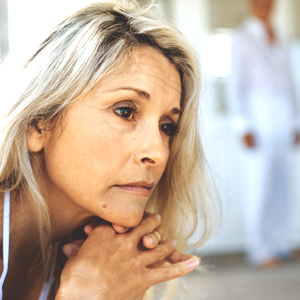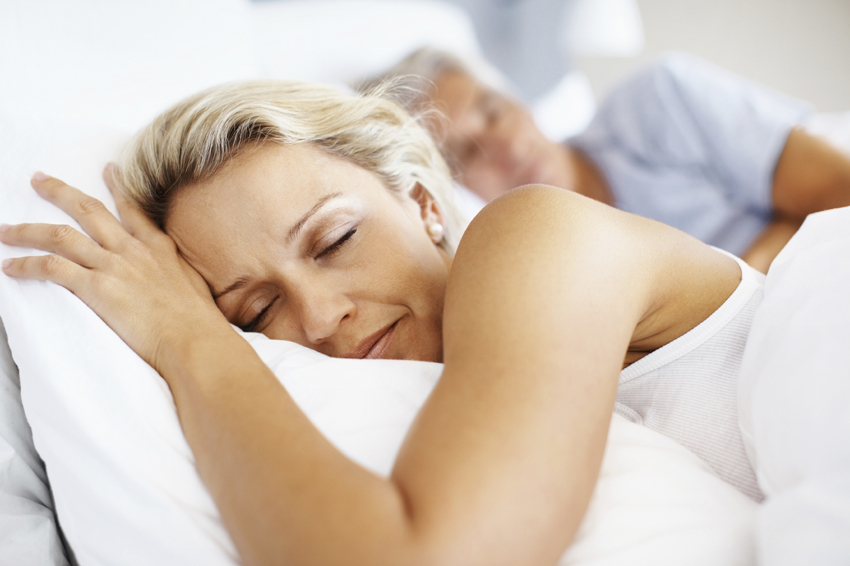Woman Snore Too
For years we have known sleep apnea to be predominantly common in
males rather than
females. Therefore the common belief has been that the sleep breathing
disorder affects mostly men and a small percentage of women. However, when a recent Swedish report released a medical
finding showing the frequency of sleep apnea in women was much higher than what
we thought, many were surprised by the data.
The research team working on the study
randomly sampled 400 out of
10,000 women with ages ranging
from 20 to 70. The results quantified that 50% of women scored within at least
the mild range of sleep apnea! This new data containing the sleep apnea
frequency found in women has gained the attention of many in the sleep
industry.
The study was led by Karl A. Franklin,
MD, PhD, from the Department of Surgical and Perioperative Sciences at Umeå University
in Sweden. The report also indicated that within
the group of women with sleep apnea, 20% percent had moderate sleep apnea and
6% had severe sleep apnea. The research further concluded that the age bracket
distribution was not equal, nor was the distribution within the varying weight
ranges.
Evidence
from the report showed that sleep apnea was related to age, obesity and hypertension but not to
daytime sleepiness. From the overall sampling,
84% of the obese women, between the
ages of 50-70, had some form of sleep apnea. In addition, 80% of the women with
high blood pressure, between the ages of 55-70, were also found to have sleep
apnea – either mild, moderate, or severe.
The women’s sleep study
was published August 16 in the European
Respiratory Journal. Information was unavailable regarding funding
and possible conflicts of interest. Regardless of the source, the reality is,
women have been overlooked as sleep apnea sufferers for too long.
With
snoring as the number one sign for sleep apnea, this led us to another related
thought. Does the problem in acknowledging women as sleep apnea sufferers, lie
partially within the female population?
When
was the last time you asked a female if she possibly
snored at night? You might as well go ahead and ask about her weight. Very few
women openly admit to snoring and that’s a huge
problem. It’s like admitting to passing gas, owning serious pushup bras, or
even worse – admitting to their real age!
When
women do admit to snoring it’s always sugar coated and almost apologetic. I once heard a
woman answering the snoring question like this: “Oh yes, sorry. I do snore but
not terribly. I snore gently.” WHAT? Was that a desperate effort to retain a
sense of dignity and a lady-like image?
Why do
several women feel the same way about answering a snoring question, especially
since we know snoring can be the alarm to a much bigger health problem such as
sleep apnea? We know snoring KILLS so why do we still tip toe around the
discussion? The question is not, “Do you sound like a dying warthog at night?”
It is, DO YOU SNORE?
If you’re
wondering what snoring has to do with sleep apnea, take a look at this Do You Snore blog from 1-800-SLEEPTEST.
We know that
sleep apnea sufferers experience repeated pauses in breathing during sleep,
causing multiple awakenings. What many of us are still unaware of is that the
pauses in breath lower the saturation of oxygen in your blood. This can result
in high blood pressure and an increased risk of many heart-related diseases. In
addition, sleep awakenings cause acute surges in blood pressure and heart rate,
further increasing stress on the heart.
In people with sleep apnea, the cardiac rest achieved in normal and proper
sleep is not possible. This is the most alarming component of sleep apnea,
since it can lead to complications such as hypertension, type 2 diabetes,
dementia, high blood pressure, depression, weight gain, and many other health
issues.
If you have a loved one who experiences any
sleep apnea symptoms such as snoring, gasping for air during sleep, daytime
fatigue, or has already been diagnosed with sleep apnea but is possibly CPAP
intolerant, please call our office immediately for a consultation with a
doctor. Within a few minutes you could be on your way to helping a friend or
family member and possibly even saving a life.
You can take a FREE sleep test today at our website: Click Here Or schedule a FREE consulation at our office today.
Gary R. Hopper DDS
1102 E. Morton Pl.
Hemet, CA 92543
(951) 925-2318



.jpg)



